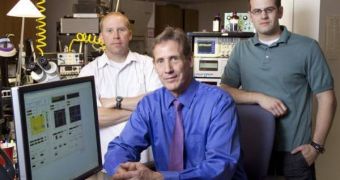For quite some time now, researchers have known that, in people addicted to drugs or medicine, the pleasure center in the brain gets “confused” and mixes up the responses it normally gives out in response to certain stimuli. Scientists have hypothesized that, by learning to control the action of this nervous center, they could at least in theory be able to make quitting the addictive substance a lot easier for those experiencing problems. Now, experts at the Brigham Young University have discovered a naturally-occurring protein, which has the ability to get mice “hooked” without the actual substance.
The paper detailing the finds will be published today in the respected journal Science, and is co-authored by BYU neuroscientist Scott Steffensen. “If we can understand how the brain's circuitry changes in association with drug abuse, it could potentially suggest ways to medically counteract the effects of dependency,” the expert said. A team of researchers from the University of Toronto also contributed to the study, alongside two of Steffensen's graduate students.
“This work may reveal a mechanism that underlies drug addiction,” added the lead author of the study, University of Toronto neurobiologist Hector Varga-Perez. In previous attempts, the investigators learned that when people become addicted to drugs or alcohol, they exhibit a rise in the levels of a protein known as BDNF (or brain-derived neurotrophic factor). For their recent trials, they excluded the drug altogether, and directly injected the protein into the ventral tegmental areas of mice's brains. Humans and rodents exhibit similarities in the way the area is formed and operates.
When the unsuspecting animals were injected with the chemical, they immediately began to act as if they were addicted to opiates, and started leaving their comfort area inside cages, in search for a “fix.” The BYU team then was able to confirm that the naturally-occurring protein plays an important part in regulating drug dependency, ScienceDaily reports.
If the experts manage to find the corresponding protein in humans, they could target what addiction counselors know as the drug-dependent state, one of the main factors in addiction. This could lead to the development of a novel way of helping people quit bad habits, by acting directly on the areas of their brain that make it so difficult for them to quit in the first place.

 14 DAY TRIAL //
14 DAY TRIAL //